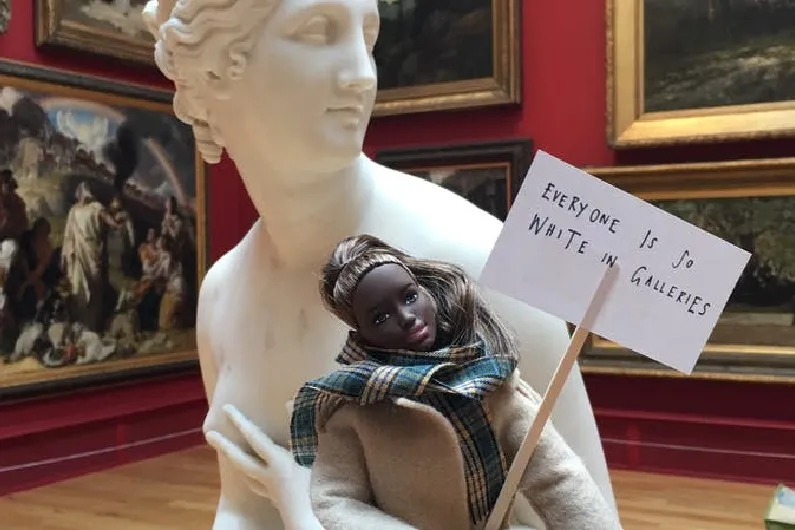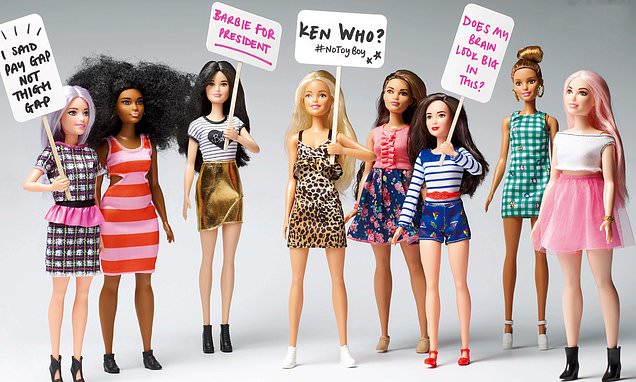By Maria Koulourioti,
Undoubtedly, passing the Bechtel test is a primordial step into breaking the man-dominated field of filmmaking. The movie Barbie (2023), went all out and surpassed almost every already highly constructed expectation. Indeed, bonus points for female-dominated production, as Margot Robbie not only starred but produced this well-marketed franchise, and Greta Gerwig carried on her ongoing legacy of popular, successful movies. We must also applaud the inclusivity card, as the cast was formed by women who embodied all shapes and sizes, races and in addition representation for trans women. Is representation the only matter when one talks about feminism? And not necessarily radical, marxist feminism, but feminism in general. The so-feared “f-word” has become quite an ambiguous matter nowadays, and we should ask ourselves why, since the Suffragettes made it crystal clear back in 1913, with the characteristic phrase, “Votes for Women”.
There are many theories about feminism, and it is not fair to disregard one completely since we live in an era of co-dependent crises. For instance, many believe feminism is about women’s liberation from the patriarchy, while others explore the woman’s nature as an economic or spiritual being, and of course, everyone’s favorite, the “are there equal rights” question.
However, in the movie feminism, gender, and womanhood are taken very light-heartedly. And that should make sense, after all, it is a comedy/adventure film. But even Margot Robbie has expressed astonishment after learning that Barbie, has been deemed “not a feminist film” by Robbie Brenner, Head and Executive Producer of Mattel Films. And here is the catch; Barbie is not a feminist propaganda, is not a feminist manifesto, it is not even feminist. It can be classified as empowering for women but not everything soft and pink has to be associated with the definition of feminism. There are five main arguments to support these bold statements.
First of all, in a movie that is intended to be set around women, the most popular character is no other than Ken, a “heartbroken” comic-relief male character, who happens to be liked for delivering fun one-liners and looking, well, like a doll. Secondly, at the end of the film, Barbie is the one to apologize for “leading on” the male protagonist while not having real romantic feelings for him. Indeed, it is certain, even proven that most women experience guilt for rejecting someone, even expected to be called slurs.
Nonetheless, patriarchy is most certainly the main cause of feminist movements. Since, if there was not a boot on women’s necks, there wouldn’t be a need for liberation. However, barbie is about womanhood. So, the question follows, in a film discovering what it means to be a woman, does the camera follow around the roots of patriarchy and men’s problems of a utopian woman-ruled regime? Various people online go as far as to call out the film’s misandrist take; I would pledge that Barbie produces quite the opposite effect, and that is praise upon men, the good guys, the ones that had it rough in the shadows of their girlfriends, mothers, sisters. If you think about the endorsement Ken and Allan got, I would say it screams pro-men! There is a whole story about how guys aren’t taught how to handle their emotions, so they cling to the patriarchy instead and are denied an identity apart from masculinity by that very same patriarchy.
Moreover, Barbie fails to acknowledge how vastly diverse experiences are for various groups of women, and the film ignores the other types of inequality that exist that are not based on gender, such as those based on color, ethnicity, class, and sexual orientation. A great example would be the socio-economic background that gets people divided into groups, thus creating minorities, and the overexploitation of specific groups, the objectification for instance, of Asian women.

Several issues are explored in the film, such as the effects of mortality, feminism and patriarchy, perfectionism, identity, and uniqueness. However, several individuals criticized the movie for having an excessive number of unfinished narratives. Rhea Pearlman plays Ruth Handler, the woman who created Barbie, and she says to the character: “We mothers stand still so our daughters can look back and see how far they’ve come.” However, the movie completely fails to discuss motherhood in a meaningful manner at any other point” There, the critic wrote. Barbie’s identity issue is intended to be sparked by the conflict between Gloria and her daughter Sasha, however, both characters are “underdeveloped” and don’t communicate in a convincing mother-daughter style.
Last, even mentioned before but must be revisited, Ken’s identification doubts consume too much of the film. Ken felt like the primary character throughout the entire film, scripting, and everything was designed to make him feel better, while Barbie “felt like a side character” throughout. Others emphasized that it’s critical to address the problems that lead men to adopt patriarchal viewpoints, which are frequently brought on by a sense of isolation and alienation in society.
All in all, we ought to reconsider when attributing to a film the feminist ideals, especially when the contrast is too high with other, actual feminist movies that are solely focused on womanhood, such as “Mona Lisa Smile.” The film’s catchphrase, “She’s everything. He’s Just Ken,” may have set some viewers up for disappointment by leading them to believe it would hardly focus on Ken, while others believed it was doing it on purpose. Maybe she doesn’t have to be everything, and he can be a little more than nothing.
References
- McPherson, C. (2023) Margot Robbie isn’t impressed with Mattel saying ‘Barbie’ isn’t feminist, Collider. Available here
- Pearcy, A. (2023) The hype around ‘Barbie’ is huge, but so is the debate. here are 6 reasons the movie is sparking discussion on social media., Insider. Available here




